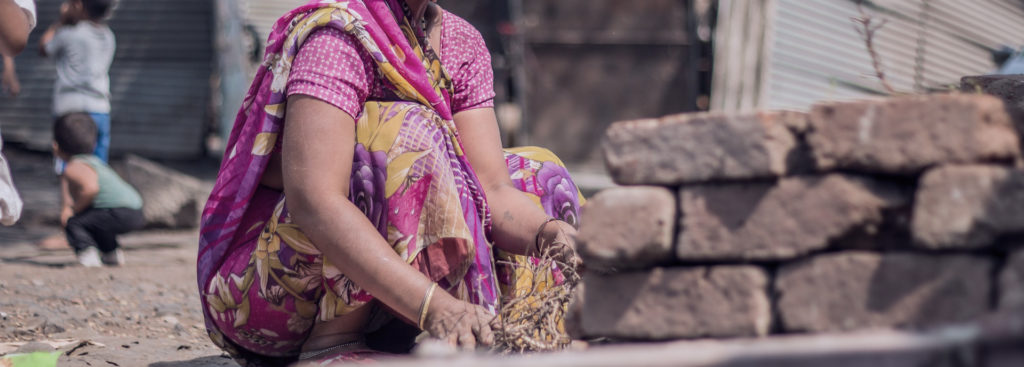
Author name :
Sarah Followgold
About :
What it all comes down to Is that everything's gonna be fine, fine, fine.
What is being fashionable worth to you?
What are you willing to sacrifice for cute, cheap fashion? For many people in the western world they willingly turn a blind eye to the human rights atrocities plaguing the fast fashion world production lines in developing countries. People who are seemingly rooted in solid values are happy to pretend they don’t know “Made in Cambodia” is perhaps code for “Made by a Child Who Had to Dropout of School at Age 8” or that “Made in Indonesia” could be code for “Made by a Single Mother Who Was Fired After She Made This for Refusing the Sexual Advances of Her Boss.” What values are you willing to bend on for cheaper clothes? With the vast majority of garment workers across the developing world female, it (horrifically) follows suit that sexual harassment and sexual abuse is running rampant. With lax labor laws that don’t even guarantee a safe and dignified working conditions, or a living wage, it shouldn’t shock you that the same managers and bosses squashing attempts to unionize are also taking advantages of their vulnerable female employees.
Recently, headlines are being made by fashion models against sexually abusive photographers and executives high up in the food chain. They’re important steps to take in the name of equality. We’re here to shine the spotlight on those working behind the scenes, those that are all too often forgotten because they aren’t quite as glamorous or famous. Being a feminist means caring about the rights of all females regardless of geography and regardless of profession.
Numbers don’t lie
The statistics are shocking. Across the developing world women working on garment factory floors are not safe.
Sunflower Women Workers Center reports that in China:
- 70% of female workers have experiences catcalling or inappropriate joking
- 66% of female workers reported inappropriate comments regarding their bodies
- 55% reported explicit staring at sexual areas of the body such as breasts
- 32% reported inappropriate touching
- 30% reported being shown sexual images
- 25% reported receiving obscene phone calls or messages
Perhaps more shocking than these statistics is that fact that while Chinese law technically protects these women in practice they feel powerless to report perpetrators or even tell them to stop in fear of losing their job or other types of retribution. A full 43% of women reported doing nothing in the face of harassment and 15% reported simply quitting and trying to find a new job.

Elsewhere around the world statistics are harder to pull together since many of these women exist in the shadows, hoping just to make an income to feed their families and not make any waves … but the reports coming directly from those involved are no less shocking:
- In Jordan female garment workers report unrealistic quotas on their productions, and if they are not met at the end of the day they are faced with a physical beating/reprimand, being “taken to the manager’s office” where sexual favors are performed in exchange for their “shortcomings” or they are simply fired. Faced with the prospect of losing their jobs, women are backed into a corner of shame and abuse.
- Haitian seamstresses report being coerced into sexual situations by their bosses or recruiters, or threatened to be blacklisted from not only their garment factory but all others in the region. Extreme poverty limits their options of standing up for themselves – they must choose between feeding their children and being raped by men in power above them.
- The British NGO, Action Aid Bangladesh estimates at least 20 percent of Bangladeshi women workers were engaging in non consensual sex at the workplace in an effort to save their jobs or bring in extra income for their families. Rachel Jewkes, director of the What Works to Prevent Violence Against Women and Girls, reports that once abused at work Bangladeshi women are much more likely to then be abused at home as “punishment for their actions” while at work. Alternatively husbands force their wives not to work to prevent abuse, which sinks their families deeper into poverty.
- Lina Abirafeh, director of the Institute for Women’s Studies in the Arab World, reports that Egyptian women risk losing their jobs and family relations if they come forward with sexual abuse allegations. In certain situations families will disown or even kill their daughters or female relatives if they are no longer virgins, even if by rape while at work. This emboldens perpetrators knowing they will likely face no consequences.
Fashion workers are fired for getting pregnant

Female garment workers around the world are often banned from becoming pregnant:
- The Human Rights Watch reports female garment workers in Cambodia are forced to take pregnancy tests frequently, and are fired if they become pregnant. This forces Cambodian women to try and hide pregnancies for as long as possible, to the detriment of their health and their baby’s health.
- The Worker’s Rights Consortium reports, “Women workers in Vietnam face pervasive pregnancy-based discrimination ranging from termination of employment to denial of statutory maternity benefits.”
- A report by the organization War on Want states that “women workers [in Honduras are vulnerable to] rights abuses such as the denial of maternity leave, forced pregnancy tests and sexual harassment or violence. A compulsory requirement for women before taking a job is to undergo a medical assessment, in which particular attention is paid to whether a woman is pregnant. In these cases the women will be rejected.”
Diving into the world behind the scenes of fast fashion uncovered atrocities left and right – and the realization that sexual abuse is among the myriad of abuses occurring in these factories is just one more reason to make the switch to purchasing ethically. Turning a blind eye and continuing to purchase fast fashion is literally lining the pockets of abusers and those who condone abuse.
Pictures © Pixabay. All rights reserved.



